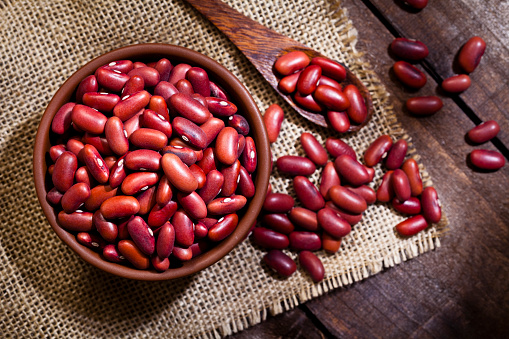
Choosing foods wisely is key to being healthy and staying that way. Foods and dishes to avoid eating raw are items you will want to put on your Don’t Eat This list. Study our list of food options, and why to opt out:
Dishes to dodge
Ceviche is a South American dish of raw fish or seafood marinated in acidic juice such as lemon, lime or orange juice. Uncooked seafood can contain bacteria or parasites that can cause vomiting or diarrhea. Pregnant or breastfeeding women and anyone with a compromised immune system shouldn’t eat this dish.
Sushi is a Japanese dish consisting of small balls or rolls of vinegar-flavored cold rice served with a garnish of vegetables, egg or raw seafood. Sushi can have bacteria and parasites like anisakiasis, which can cause vomiting, diarrhea and stomach pain. Folks with a compromised immune system, young children and women who are pregnant or breastfeeding, should skip it. All folks should avoid fish that could be high in mercury, like swordfish, bigeye tuna and shark.
Tartare is chopped raw meat or fish, prepared with seasonings. Choices may include salmon, steak, chicken, venison or tuna tartare; it is often served with a raw egg yolk. Raw meat and poultry are most likely to cause food poisoning. They can have bacteria from E. coli to Salmonella, which can make you extremely sick. Meat, poultry and seafood should be cooked to the recommended temperatures.
Raw foods to avoid
Flour and dough can be hazardous because of bacteria such as Salmonella, E-coli and Listeria that cause foodborne illnesses. Although flour is milled, it is the cooking process that provides the “kill” step that will eliminate the bacteria, i.e. boiling, baking, roasting, microwaving and frying.
Bitter almonds contain hydrocyanic acid which can be lethal. These almonds are not sold in the U.S. The almonds we eat, that are flavorful and healthy, are the “sweet almonds.”
Raw cashews are not safe to eat; they contain urushiol, which is found in poison ivy. Urushiol is toxic, and contact with it can trigger a skin reaction in some people.
Castor beans are used to produce castor oil. Castor oil is the only castor bean product that is safe to eat. The outer hull of the bean contains ricin which is a highly toxic.
Red kidney beans are known to be nutritious, yet they’re not good for you raw. They contain the protein lectin, a toxin present when the beans are raw. Eating just a few uncooked red kidney beans can result in symptoms of food poisoning.
Lima beans, like red kidney beans, contain good nutrients for you, but they must be cooked. Raw lima beans contain cyanogenic glycosides, which can release cyanide during the early stages of processing or when the plant is damaged. This is believed to be a protective element for this plant.
Raw potatoes should not be eaten because they are potentially toxic. Those that are green or have a bit of green near the skin have higher levels of solanine. You should not cook these discolored potatoes, but throw them away. Symptoms of potato poisoning include stomach pain, headache and paralysis
Rhubarb leaves are considered toxic due to their high content of oxalic acid. Excess oxalic acid can contribute to developing kidney stones.
Sprouts are typically grown in warm moist environments, which are also the conditions that bacteria Salmonella, Listeria and E-coli love. Avoid eating raw.
Taro is a tuber that should only be eaten cooked. Raw taro has compounds called oxalates that can cause swelling and irritation in your lips, mouth and throat.
Yucca leaves and the roots of raw yucca also contain cyanogenic glycosides, which release cyanide when eaten. Yucca is still edible, but it must be washed thoroughly, rinsed, peeled and cooked before consumption.
Wild mushrooms are one of the most concentrated sources of agaritine, a naturally occurring toxin. Some research indicates that agaritine has a carcinogenic effect. This vegetable can be safely eaten cooked because cooking destroys this toxin.
Raw eggs may contain Salmonella bacteria; these bacteria can cause a food-borne illness. The best way to avoid illness is to cook eggs until the white and yolk are firm and to serve them immediately.
Raw milk straight from the cow can contain Salmonella, and bacteria such as E-coli. Though the U.S. Food and Drug Administration (FDA) recommend that milk be pasteurized, raw milk is legally sold in some states.
Raw pork or undercooked pork may contain bacteria—E. coli or Salmonella. As with other meats, you want to cook the pork to at least 145ºF.
Oysters can contain bacteria and viruses from the water where they are harvested. The Vibrio bacteria can cause illness that ranges from mild to severe, with Vibrio Vulnificus being the severe form.









